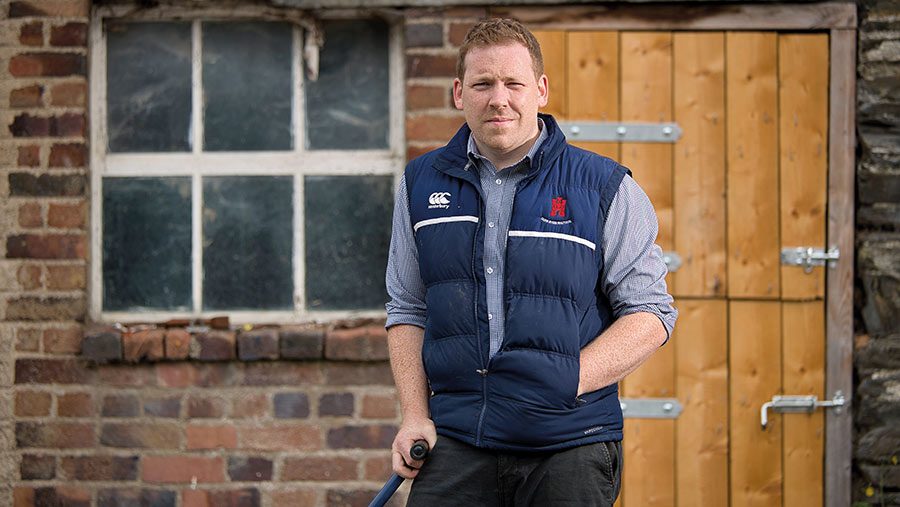Farmer Focus: Stockmanship can be learned by new generation
 Joe Mault © Richard Stanton
Joe Mault © Richard Stanton It’s funny the things that remind you of childhood.
Recently, while I was shaving the backs of some store cattle, I was immediately transported back to being a little boy plonked in a cattle trough, writing down numbers Dad shouted to me.
Watching and listening to my taid (grandad) and dad work was always interesting – they discussed all manner of topics and gossip. It makes me laugh now that I do the same with my own daughter.
Who knew that cattle troughs make such good play pens?
Growing up I spent a lot of time with my taid, especially in the suckler cow shed, while my dad and nanna milked the dairy herd.
We used to keep the calves from the dairy herd and “double-suckle” the sucklers, and it was my taid and me who made sure all the calves had their fair share.
See also: Analysis: Who owns Britain’s farmland?
Although at the time I was probably a grumpy teenager, annoyed with having to spend my evenings in a shed waiting for a calf to suck, I realise now that this was my apprenticeship to learn the ropes of stockmanship.
It was literally ropes, as I learned how to tie a cow’s legs so she wouldn’t kick her adopted calf off. The idea was that every suckler cow would be turned out in the spring with two calves.
We stopped milking in 2002, and one of the first things we noticed was the loss of that extra calf that came from the dairy herd.
While the skills I learned during this apprenticeship are important, they are, of course, not genetic, and I was not born with them. This means that anyone can learn these skills, whatever their background.
Therefore, I feel strongly that the agricultural industry should be open to all walks of life to get fresh perspectives and new ideas.
With the problems climate change is going to throw at us, and David Beasley, head of the World Food Programme, stating there won’t be enough food for everyone in 2023, it’s a diverse industry that will be able to answer these problems.
While my taid’s generation knew a lot – and it’s important to learn the lessons from the past – it is also key that new generations can meet future challenges.

